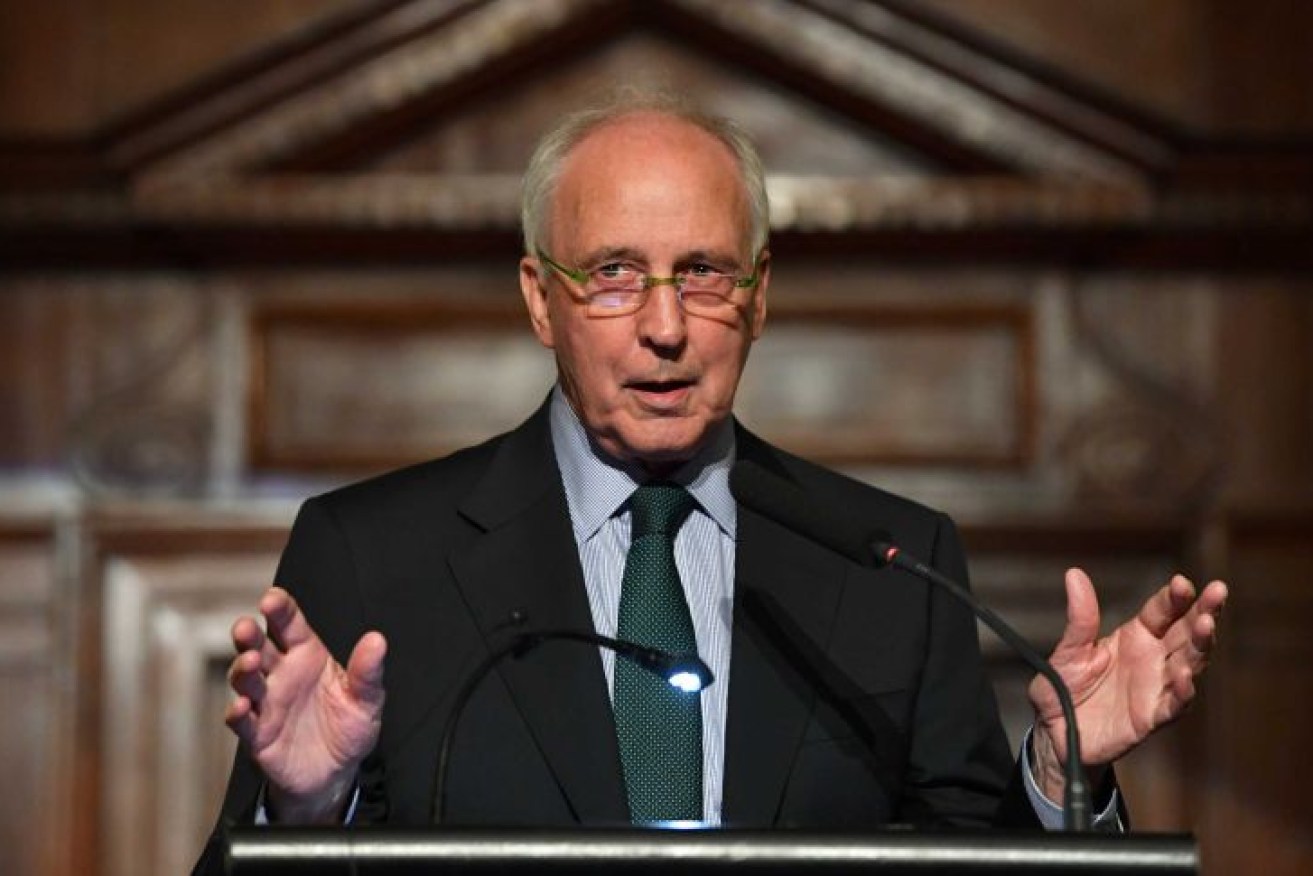Treasurer scolds Paul Keating over ‘nasty’ RBA comments


Former prime minister Paul Keating says the RBA is "way behind the curve". Photo: AAP
Former prime minister Paul Keating has copped an extraordinary spray for suggesting the Reserve Bank should have done more throughout the COVID-19 economic crisis.
“His was a very nasty, vindictive, unnecessary, misguided attack,” Federal Treasurer Josh Frydenberg said on Thursday.
“The RBA has done very well through this crisis. Unlike other crises, they didn’t have room to move on monetary policy.”
Paul Keating had earlier accused the Reserve Bank of conservatism, laziness and failing to do what is necessary to head off the worst of the coronavirus-induced economic crisis.
In a letter distributed to the media, the former prime minister said the RBA should be funding the “mountainous sums” of government spending required to support the corona-ravaged economy, and it should not rule out the policy option of buying government bonds directly from Treasury to do so.
He argued the central bank ought to remember its role is to ensure “full employment”, and in an economic emergency that means breaking with orthodoxy and “doing what is sensibly required” to achieve that goal.
Mr Keating — who was treasurer during Australia’s last recession in the early 1990s — said it would make federal government’s funding task “much easier and support for the country better” if the Reserve Bank bought whatever level of government debt was necessary and locked it away on its balance sheet.
He criticised RBA officials for lacking the courage to break with economic orthodoxy to allow monetary financing of deficit spending, or to even support a larger traditional bond-buying program, and said they are too concerned about what other central bankers would think if Australia went down that path.
The RBA’s governor, Philip Lowe, has repeatedly dismissed calls this year for the bank to purchase government bonds directly from Treasury to finance the government’s deficit spending.
“It has to be remembered, these are the high priests of the incremental,” Mr Keating commented.
“Making absolutely certain that not a bank toe will be put across the line of central bank orthodoxy.
“Certainly not buying bonds directly from Treasury — wash your mouth out on that one — what would they say about us at the annual Bank for International Settlements meeting in Basel?
“Not even ambitiously buying sufficient bonds in the secondary market, like the European Central Bank or the Bank of Japan.
“The Reserve Bank might do as it was set up to do — help the government. Be a utility. Shoulder the load. And in a super-low inflationary world, that load is funding fiscal policy. Mountainous sums of it.”
Mr Frydenberg said the central bank had instead pumped liquidity into the banking system and purchased $60 billion worth of government bonds.

Josh Frydenberg was unimpressed by Paul Keating’s comments. Photo: AAP
He suggested Mr Keating’s comments could have been triggered by the Reserve Bank governor’s recent comments about the trade-off between wage rises and increases to superannuation.
“Many people are left wondering what is Paul Keating’s motives behind this nasty, unnecessary attack,” Mr Frydenberg said
“The Reserve Bank is independent and he shouldn’t be attacking the bank like he has.”
Mr Keating’s decision to weigh into the debate about Australia’s handling of the coronavirus recession was prompted by a speech on Tuesday by RBA Deputy Governor Guy Debelle.
Dr Debelle hinted that the RBA would be willing to cut the official interest rate slightly, from 0.25 per cent to possibly 0.1 per cent, to add a bit more stimulus to the economy.
Mr Keating was scathing of the RBA’s conservative incrementalism, arguing bolder policy moves are required to confront the worst economic crisis in 90 years.
He said there was no reason why the RBA should not adopt monetary financing of deficit spending.
In arguing this, Mr Keating appears to be siding with proponents of a school of economic thought called Modern Monetary Theory who have been arguing there is no need for the RBA to buy bonds from the secondary market to fund government spending measures.
They argue the RBA has the power to create money itself to finance the federal government’s stimulus spending by purchasing the bonds directly from Treasury.
But it is a policy option the RBA has dismissed.
“I want to make it very clear that monetary financing of fiscal policy is not an option under consideration in Australia, nor does it need to be,” RBA governor Philip Lowe said in July.
“The Australian government is able to finance itself in the bond market, and it can do so on very favourable terms.”
-with AAP








